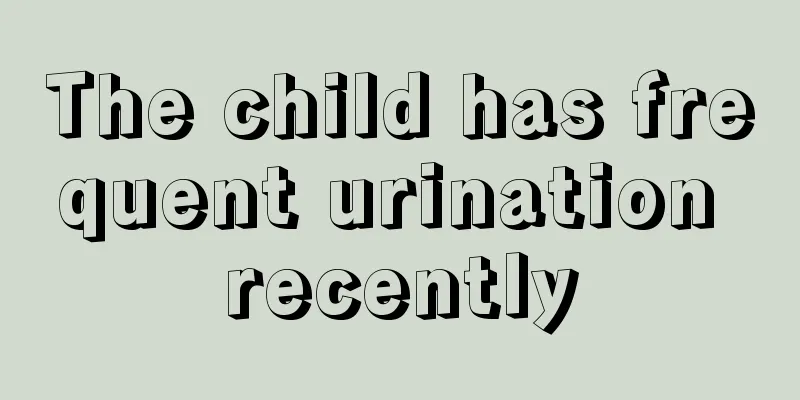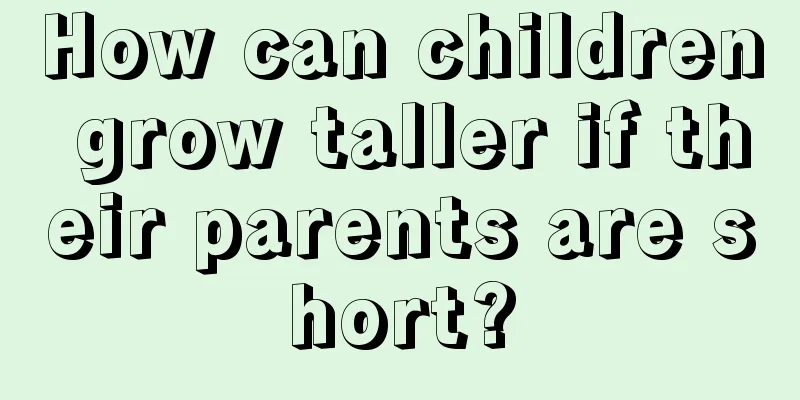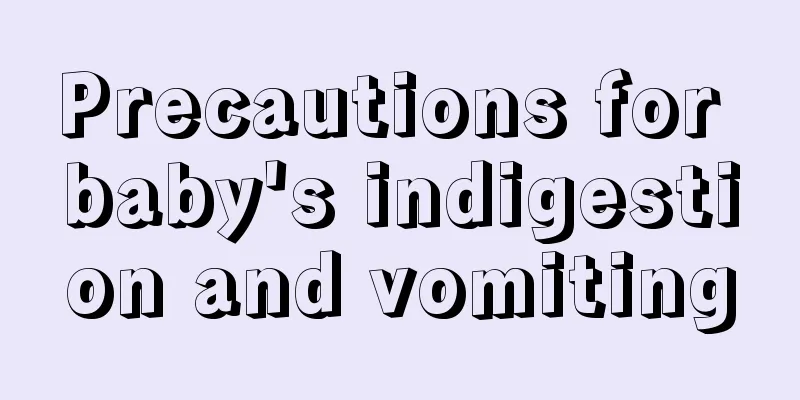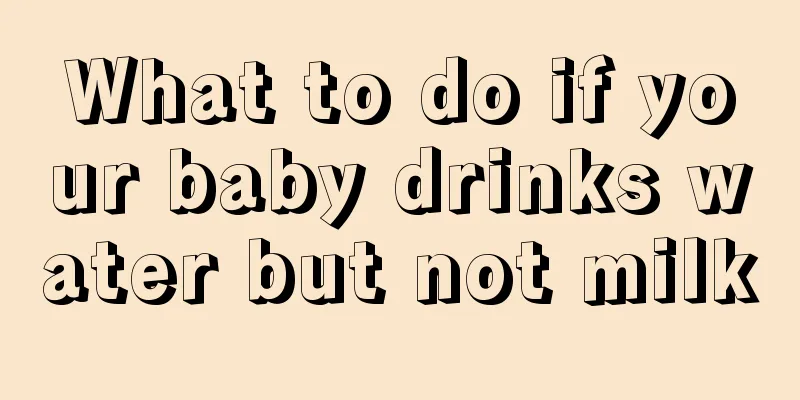What to do if your child has poor digestion and vomits
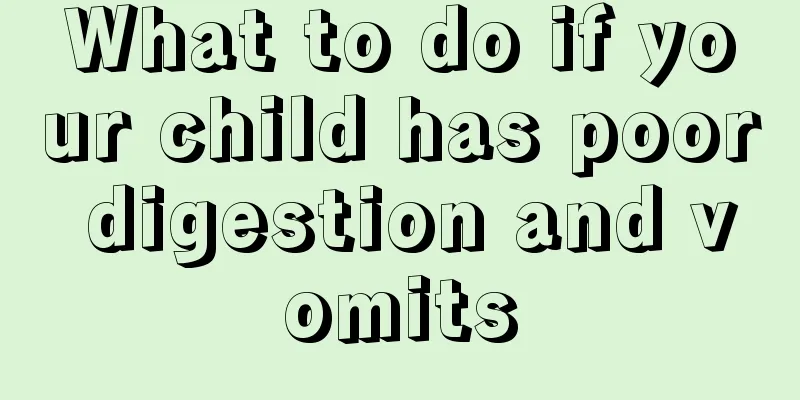
|
Nowadays, many families have only one child, so all the love is placed on this child. Parents are always particularly concerned about the child's health and nutrition. Some parents are afraid that their children will be hungry, so they give them complementary foods. In fact, this is very detrimental to the child's health. Indigestion may easily occur, and the child may vomit after a meal. So, what should we do if the child vomits due to poor digestion? If your baby vomits after eating, don't worry if his bowel movements are normal and he has no fever or other discomfort. It is recommended to reduce the amount of complementary food or fruit appropriately, and try to avoid baby activities after feeding the baby. Baby vomiting is due to reverse peristalsis of the esophagus, stomach or intestines, accompanied by strong contraction of the abdominal muscles and diaphragm, which forces the contents of the esophagus or stomach to pour out of the mouth. Vomiting can be caused by many reasons. The most common reason for babies is digestive tract problems. For vomiting itself, no special treatment is required. The most important thing is to find the cause of vomiting and then treat it accordingly. The other is to prevent dehydration of babies caused by frequent vomiting. "The baby finds eating very painful, feels like there is something in the throat and wants to vomit, and the whole body turns red after eating." These are all typical manifestations of acute food allergies. For babies who vomit after eating, here are some suggestions for parents on adding complementary food: 1. Don’t choose mixed food; 2. Do not feed the baby with food that the parents do not normally eat or rarely eat; 3. The types and tastes of food should gradually become closer to those of parents. Not all commercial foods are suitable for your children, so you must have choices! Adding complementary foods too early or too late will have adverse effects on the baby's health. Adding foods that are not suitable for babies to digest too early will cause vomiting and diarrhea due to their immature digestive function, leading to digestive disorders. After 9 months, the nature of baby food should be diversified: thick juice, puree, finely chopped, and soft chunks. This helps your baby learn to chew. If the baby has a poor acceptance of coarse food, you can make it more refined for the baby. Because every baby has a different acceptance of complementary food, we should use the baby's own acceptance as the standard, gradually from paste to fine particles, and then to coarse particles, without having to prepare it in advance. However, if introduced too slowly, feeding problems such as reluctance to chew and vomiting may increase. After reading the introduction in the above article, I believe all parents should know what to do if their children have poor digestion and vomit. In order to enable their children to grow up healthily, parents must pay attention and not always worry about their children not eating enough or not getting enough nutrition. In fact, feeding children too much will often cause some gastrointestinal problems, which is not conducive to the healthy development of children. |
<<: What's wrong with children's poor digestion?
>>: What to do if your child has poor digestion and diarrhea
Recommend
Why do children have cold hands and feet?
The phenomenon of cold hands and feet is not only...
What to do if children can't sleep at night
Everyone knows that some babies are very energeti...
Children with fever and cold feet
Some parents do not treat their babies' fever...
What are the foods that can replenish blood for babies?
Children's blood supplement Many parents and ...
Precautions for adding complementary food to four-month-old babies
As babies grow up day by day, many mothers will w...
Four month old baby straining to poop
In the process of growing up, babies usually need...
What should I pay attention to when my baby has sinusitis?
Sinusitis is an inflammation of the sinus mucosa ...
There is a white spot on the baby's hand
Parents are very concerned about their babies and...
How many times a day is normal for babies under one month old?
When seeing a baby who is less than a month old, ...
What are baby teething sticks made of?
When your baby starts teething, he will have some...
What are the reasons why babies have difficulty falling asleep?
Baby sleeping is a problem that many mothers worr...
What medicine should children take if they catch a cold and vomit?
Because children's bodies are not yet fully d...
Sequelae of elbow fracture in children
Children's elbow fractures are mainly caused ...
Why do babies get thrush?
There are many reasons for thrush in babies. For ...
Preventing children from getting sick can improve their immunity
The health of the baby is very important to the p...


